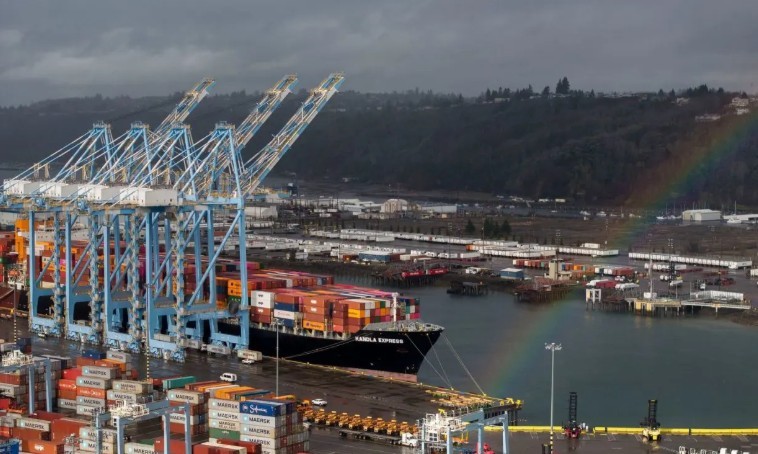
Image credit: The Star
PETALING JAYA: Local businesses are urged to diversify their export markets to mitigate the risks associated with over-reliance on a single market, despite the 90-day pause in the United States-China tariff war.
Small and Medium Enterprises Association of Malaysia (Samenta) president Datuk William Ng said the de-escalation of the tariff war between the two countries was a huge relief and is hoping it holds.
“The economic impact of a sustained trade conflict between the world’s two largest economies will impact economies everywhere.
“Regardless of the latest developments, it is crucial that our exporters diversify our markets immediately to reduce single-market risks,” he said when contacted yesterday.
Washington and Beijing had agreed to drastically lower sky-high tariffs in a deal that emerged from pivotal talks at the weekend in Geneva.
Under the agreement, US duties on Chinese goods will be lowered from 145% to 30%, while China’s retaliatory tariffs on US imports will be lowered from 125% to 10%.
China also removed a ban on airlines taking delivery of Boeing planes, according to international reports.
Ng, however, said given the fluidity of the situation and the policy uncertainty, Malaysia would need to brace for the worst-case scenario, including the possibility that the 24% tariff announced earlier could be imposed upon the expiry of the 90-day pause.
“The RM1bil intervention fund announced by the Prime Minister should proceed, with a focus on helping businesses, especially small and medium enterprises (SMEs), expand their access into non-traditional markets.
“As it is, we are not seeing any climb down by customers in the United States on requests for price adjustments, nor do we see any spike in demand from either China or the United States.
“The picture will be much clearer towards the end of the 90-day pause,” he said.
At the same time, Ng said it was crucial for the Investment, Trade and Industry Ministry to consider re-delegating the issuance of non-preferential certificates of origin (NPCO) for US exports to chambers and associations, given the latest developments.
“These need not happen immediately, but they should be in the pipeline should the de-escalation in tariffs continue,” added Ng.
Malaysia Medical Devices Manufacturers Association (Perantim) president Johari Abu Kasim said both the United States and China were two critical markets to Malaysia’s medical device industry and that the country and the rest of the world needed market stability to return.
“Nonetheless, small nations’ trades are not in their list of priorities, and Malaysia needs to get ready and brace for the worst,” he said.
However, after 90 days of observing the recent tough trade disputes between the United States and other countries, Perantim urged the government to actively seek new markets, particularly in Asean, OIC countries, and BRICS.
The group also suggested reviewing all 16 existing free trade agreements and pushing for fair, two-way trade deals.
SME Association of Malaysia national president Chin Chee Seong said that the suspension of tariffs between the United States and China presents a favourable opportunity for Malaysia to negotiate lower tariffs.
“This will bring back the supply chain and reduce disruption in existing shipping lines.
“I hope the situation will further improve and be good for our economy too,” he said.
Kuala Lumpur and Selangor Indian Chamber of Commerce and Industry (KLSICCI) president Nivas Ragavan said the US-China decision was a welcome development for global trade stability.
“While it’s a positive signal, whether this detente will hold remains uncertain,” he said.
“Both nations have deep strategic and economic rivalries, and any breakdown in negotiations could see tariffs being reimposed, possibly even reverting to triple-digit levels if talks falter.”
For Malaysia, the truce offered short-term relief and opportunities, said Nivas.
“As a trading nation with strong links to both the United States and China, Malaysia has previously benefited from trade diversion effects, as companies sought alternative sourcing and manufacturing hubs.
“A continued pause could allow Malaysian exporters to better plan their trade flows, while our semiconductor, electrical and electronics and palm oil sectors stand to gain from more stable global demand,” he said.
Source: https://www.thestar.com.my/news/nation/2025/05/15/diversify-before-pause-ends

